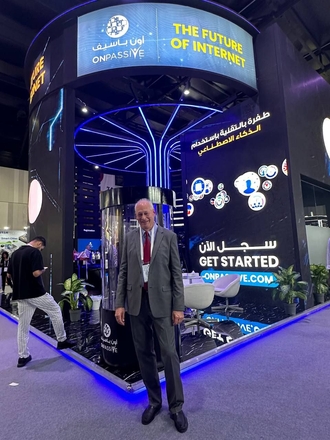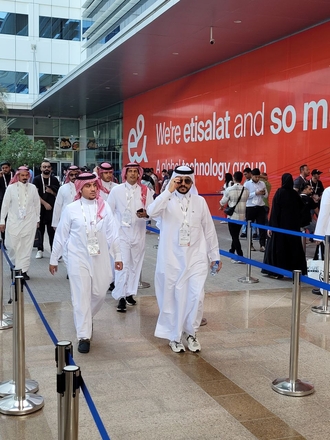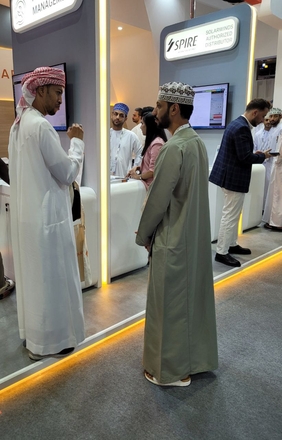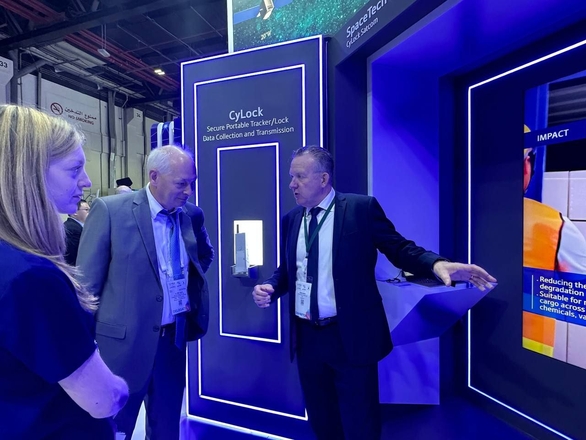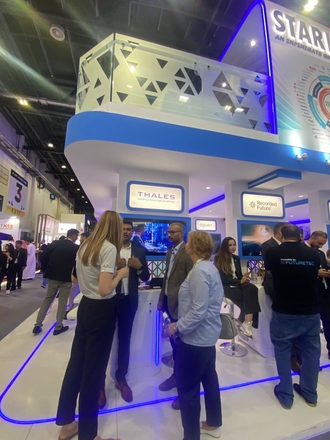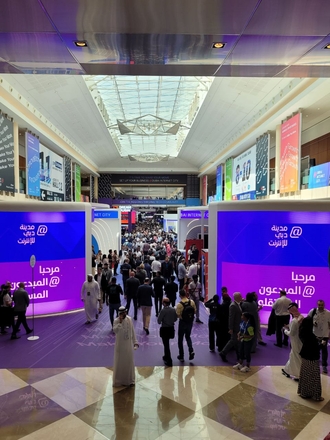Data Protection Gulf: Gulf Representatives Reveal the Way they are Addressing Cyber Threats at Gitex
The RSCC delegation keeps on working at GITEX 2023 and becomes acquainted with the latest trends in the telecommunications industry. During five days from 16 to 20 October, GITEX workshops and conferences are attended by 1,400 speakers - world leading experts in various fields, 80% of whom are speaking in this region for the first time ever. And while the keynote idea of this year is claimed to be artificial intelligence, the second most topical issue is cybersecurity.
Cyber defence leaders has gathered at GITEX 2023 to address the urgent issues of cybercrime, which is projected to cause $10.5 trillion in annual damages by 2025. Ransomware, crypto-crime and generative AI risks are among the key threats that security professionals must address in the digital age. GITEX discusses various aspects of data protection, in particular - moving from remediation to prevention of cyberattacks.
Mohamed Al Kuwaiti, Head of Cyber Security for the UAE Government, delivered the keynote address at GITEX GLOBAL. He told about the operations of the UAE Cyber Security Council across the country and the way the Council cooperates with partners to protect people and organisations from threats. "We are striving to continuously implement innovations and establish partnerships with entities, countries and governments. Our vision is to create a great place for the world to collaborate and work," he added.
The panel discussion "Cybersecurity at the Heart of Digital Transformation" was attended by Amer Sharaf, Executive Director, Cybersecurity Systems and Services Sector, Dubai Electronic Security Center, UAE, Pengiran Dato Shamhary Mustafa, Minister of Transport and Infocommunications, Brunei, and Ousman Bah, Minister of Communications and Digital Economy, The Gambia. The panellists shared their opinions on finding the right balance between security and innovations in the digital age. All of them noted the importance of collaboration with both public and private organisations, emphasizing the need to support investments in cybersecurity.
According to Cybersecurity Ventures agency, the need to protect digital businesses and consumers from cybercrime will result in increasing global spending on cybersecurity products and services to $1.75 trillion in aggregate over the five-year period from 2021 to 2025.
Developing digital technologies in the Middle East countries also results in a growing risk of cyberattacks. The combination of a sustainable economy and high rates of digitalization gains attention of cybercriminals.
In 2020, the average cost of a cyberattack on an organisation in Saudi Arabia and the UAE totalled $6.53 million, 69% above the global average. The Middle East cybersecurity market size is expected to reach nearly $30 billion by 2025 at an average annual rate of growth of 14%. And new reliable services are more in demand than ever.
For instance, several new cyber defence products supported by the UAE government were showcased at the Gitex stands. Resecurity, Inc. has unveiled a data preservation service (IDP). Gene Yoo, Chief Executive Officer of Resecurity, said at the product presentation, "Protecting identity by Resecurity is crucial to strengthening Dubai's digital infrastructure and strengthening the Emirate's digital economy. Resecurity solution is designed to protect both individuals and businesses from escalating risks of account takeover, fraudulent activity and malicious online behaviour. We have prepared this product as part of the Dubai Cybersecurity Strategy introduced by Sheikh Hamdan. This strategy aims to create a community that is protected from any cyber threats."
Trend Micro unveiled its latest innovation, Trend Vision One, at Gitex. This cutting-edge artificial intelligence (AI)-based solution is designed to provide unprecedented data protection.
Trend Micro's semi-annual report "Step Ahead of Risk" states that in the first half of 2023 alone, the company's solutions detected and prevented more than 475 million threats in the Middle East and Africa region, highlighting the growing intensity and complexity of such attacks. Furthermore, over 39 million threats were detected and blocked in the UAE alone.
Aloysius Cheang, Chief Security Officer, Huawei (MEA) for the Middle East and Central Asia, highlighted some of the cybersecurity risks associated with the skyrocketing artificial intelligence industry. Even though generative AI can enhance cybersecurity, it can also create some potential vulnerabilities and risks. Enterprises, government and communities need to pro-actively address potential issues, regulate the ethical use of generative AI in cybersecurity and establish a robust governance framework."
Several Russian companies specializing in cyber threats were also represented at the exhibition with Kaspersky Lab as the largest of them. In 2023, the number of hacker attacks on Middle Eastern countries increased by 15-20% as compared to 2022, with Saudi Arabia and the UAE suffering the most, said Amin Hasbini, head of Kaspersky Lab's research centre for the Middle East, Turkey and Africa. Hasbini said that since last year, Kaspersky Lab has been recording an increasing number of hackers’ APT attacks on Middle Eastern countries. Hacker attacks are also frequent in Jordan, Egypt and Turkey, he said. The increased activity of hackers in this region is explained by the low level of security, says the head of the research centre. According to him North African countries are using obsolete operating systems and devices that are very vulnerable to attacks. Kaspersky Lab's stand presented the Digital Factory project dedicated to the industrial infrastructure security. “The Digital Factory” is a testing ground for cyber immune solutions for the robust digitalization of industry, from warehouse management to final product delivery. The manufacturing process is carried out using a prototype of a professional mobile device based on KasperskyOS.
